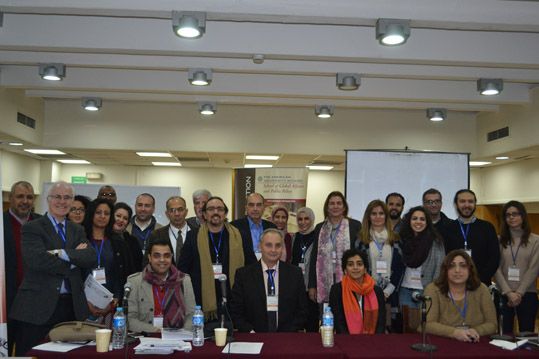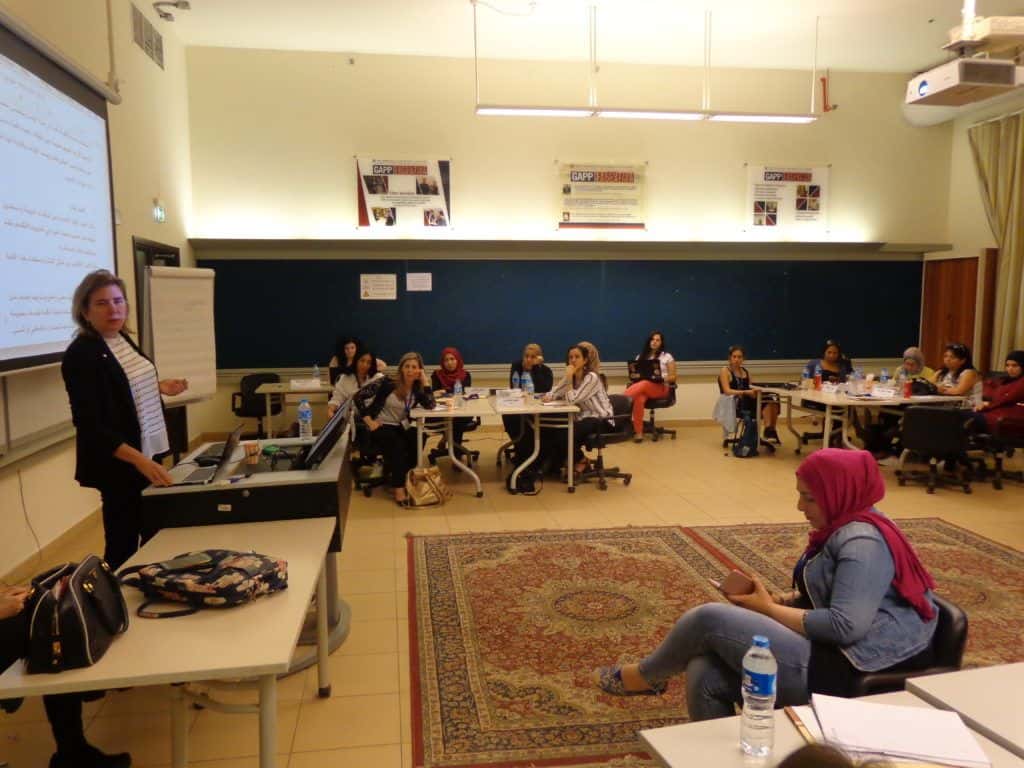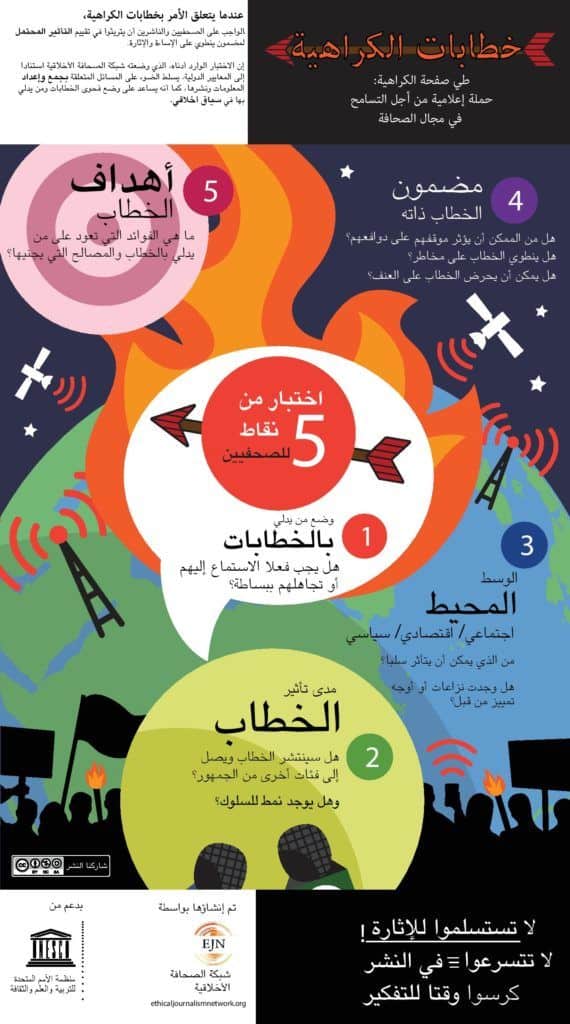Glossary of Hate Speech in Egyptian Media Launches in Cairo
Ethical Journalism Network, American University in Cairo and Egypt Media Development Programme launch the Glossary of Hate Speech in Egyptian Media to help media identify hate speech and deal ethically with dangerous words and images.
Since 2011 Egypt’s political upheaval has coincided with hate speech in media becoming increasingly used to pursue cultural, sectarian and political agendas, as well as to discriminate against activists and those wanting to participate in political debate and civil society.
In the absence of agreement on what should be defined as hate speech and how media should approach the problem, the Ethical Journalism Network and Egypt Media Development Programme partnered with the American University in Cairo’s Department for Journalism and Mass Communication to create a glossary of hate speech in Egyptian media as a starting point for the development of clear guidelines and standards.
The glossary, launched this week in at the American University in Cairo, begins by providing background on how Egyptian law and the country’s constitution define hate speech, as well as relevant universal human rights principles. The guide provides examples of where media have fallen short of their ethical responsibilities when dealing with dangerous language and images. But it also illustrates good practice and provides guidance to help journalists and media identify hate speech and report on it in an ethical context using the EJN’s five-point test for hate speech.
Dr. Naila Hamdy, Associate Professor and Chair of the AUC’s Journalism and Mass Communication department, presented the glossary to the Arab-US Association for Communication Educators’ 22nd Annual Conference in Cairo yesterday, explaining how the EJN’s five-point test for hate speech, which is available in Arabic and over 30 other languages, was used as part of the project’s research methodology.
Hamdy told the audience of journalism academics and practitioners that “media literacy is the antidote to combat hate speech” while presenting the EJN’s media literacy campaign, which calls for the ethics of journalism to be used as an inspiration for free expression.
EJN board member Dr. Zahera Harb, a senior lecturer in International Journalism at City University London, who delivered her own research on hate speech in Arab media to the conference, co-presented the new hate speech glossary, explaining that “the 5 point test helps journalists determine if what they’re broadcasting is a hate speech or not“.
Both Harb and Hamdy emphasised that the glossary is not intended to be comprehensive but is a starting point for debate within newsrooms and to highlight the kinds of questions journalists need to ask in the gathering, preparation and dissemination of news and information that could incite violence. The glossary, along with the EJN test for hate speech, will help journalists and editors place what is said and who is saying it in an ethical context.
Addressing Hate Speech in Arab Media

Participants at the hate speech seminar at the American University of Cairo organised by the EJN and Egyptian Media Development Programme.
The glossary was reviewed in December last year as part of a meeting organised by the Ethical Journalism Network, The American University in Cairo and the Egypt Media Development Programme in Cairo.
The seminar –Turning the Page of Hate in Arab Media – was the third in a series that the EJN has initiated to bring together media and academics from around the Arab world to create plans of action to address hate speech in Arabic media.
Participants in the forum emphasised that the glossary should not be seen as a list of banned words but as a reference for journalists to:
- Find alternatives to words that in some contexts can incite violence
- Provide examples of good and bad practice when it comes to reporting hate speech and terrorist propaganda
- Raise awareness of the need to use tools such as the EJN’s five-point test for hate speech and the values of ethical journalism.
The seminar resolved to explore innovative ways to make the glossary accessible and useful for working journalists as well as media development and media literacy efforts.

Dr. Naila Hamdy uses the Egyptian Hate Speech Glossary to teach ethics module as part of the WAN-IFRA Women in News Media Management program at AUC in May 2017.
To that end, in May this year the glossary was used in the ethics module of a Media Management Certificate Course formulated by Dr Naila Hamdy to train over 60 journalists, editors and media managers from Jordan, Palestine, Lebanon and Egypt at the American University in Cairo as part of the WAN-IFRA Women in News Media Management program.
Participants said that they were impressed by the efforts made to create real tools to combat the phenomenon of hate speech and made suggestions for how such a glossary could be adapted for their home countries and used in their own media outlets.
To follow up on this positive feedback the EJN will hold a workshop on hate speech at the Arab Reporters for Investigative Journalism’s annual conference in Jordan in December and launch new glossary initiatives in Lebanon and Jordan in 2018.

The EJN five-point test for hate speech has been developed by EJN advisers and is based on international standards.
It highlights some questions to be asked in the gathering, preparation and dissemination of news and information that will help journalists and editors place what is said and who is saying it in an ethical context.
The EJN’s 5-Point Test for Hate Speech Video
Watch Aidan White explain how journalists can use the test in the video below.
Watch our YouTube playlist of videos on reporting hate speech.
The EJN’s 5-Point Test Infographics
The EJN’s 5-point test infographic has been translated into over 20 languages. Download it and use it in your newsroom. Contact us if you would like to support the campaign by translating the test into more languages.
